Homage to Omar Amiralay
Omar Amiralay, one of the leading figures of Arab cinema, died of a heart attack last February. He was 67. With his death, the Arab world and the world of cinema have lost a great filmmaker and a man of steadfast courage.
A week before he died, he had signed a declaration supporting the anti-government demonstrations in Egypt and Tunisia. He was to be denied the happiness of living through the Arab Spring.
His origins were Turkish and Arab; he was born in Damascus and then studied in Paris where some of us had the privilege of meeting him. He was a man of great intelligence, possessed a calm, determined power of persuasion.
Very early on, he denounced the social and economic conditions in Syria, which had been steadily worsening since the Baath party came to power. He had been summoned by the Secret Service and accused of having initiated demonstrations in favour of political reform and freedom.
He achieved international recognition with his film A Flood in Baath Country (2003), which caused most of his films to be banned in Syria. It reveals the mechanics of a system in which a stereotyped ideological language accompanies each citizen from an early age into adulthood. In 2000 Amiralay directed The Man with the Golden Soles, a film on former Lebanese Prime Minister Rafik Hariri, murdered in Beirut in 2005. Among other notable films are On a Day of Ordinary Violence, My Friend Michel Seurat... (1996), a portrait of a former hostage in Lebanon, The Intimate Enemy (1985) which focuses on the 1965 terrorist attacks in Paris and Everyday Life in a Syrian Village (1974).
"I live in a country which, betrayed by its government, deserted by its elite, abandoned by its intellectuals, is walking steadily towards its fall." What is happening at present in Syria certainly doesn't contradict Amiralay, but the Arab nations are on the move and may refute him in the end.
back to article list
Omar Amiralay, one of the leading figures of Arab cinema, died of a heart attack last February. He was 67. With his death, the Arab world and the world of cinema have lost a great filmmaker and a man of steadfast courage.
A week before he died, he had signed a declaration supporting the anti-government demonstrations in Egypt and Tunisia. He was to be denied the happiness of living through the Arab Spring.
His origins were Turkish and Arab; he was born in Damascus and then studied in Paris where some of us had the privilege of meeting him. He was a man of great intelligence, possessed a calm, determined power of persuasion.
Very early on, he denounced the social and economic conditions in Syria, which had been steadily worsening since the Baath party came to power. He had been summoned by the Secret Service and accused of having initiated demonstrations in favour of political reform and freedom.
He achieved international recognition with his film A Flood in Baath Country (2003), which caused most of his films to be banned in Syria. It reveals the mechanics of a system in which a stereotyped ideological language accompanies each citizen from an early age into adulthood. In 2000 Amiralay directed The Man with the Golden Soles, a film on former Lebanese Prime Minister Rafik Hariri, murdered in Beirut in 2005. Among other notable films are On a Day of Ordinary Violence, My Friend Michel Seurat... (1996), a portrait of a former hostage in Lebanon, The Intimate Enemy (1985) which focuses on the 1965 terrorist attacks in Paris and Everyday Life in a Syrian Village (1974).
"I live in a country which, betrayed by its government, deserted by its elite, abandoned by its intellectuals, is walking steadily towards its fall." What is happening at present in Syria certainly doesn't contradict Amiralay, but the Arab nations are on the move and may refute him in the end.
back to article list
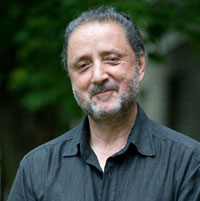
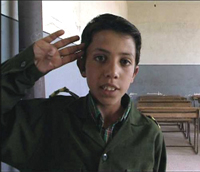
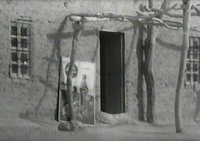

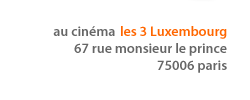
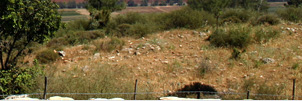



 page created by mayoco: manage your content
page created by mayoco: manage your content